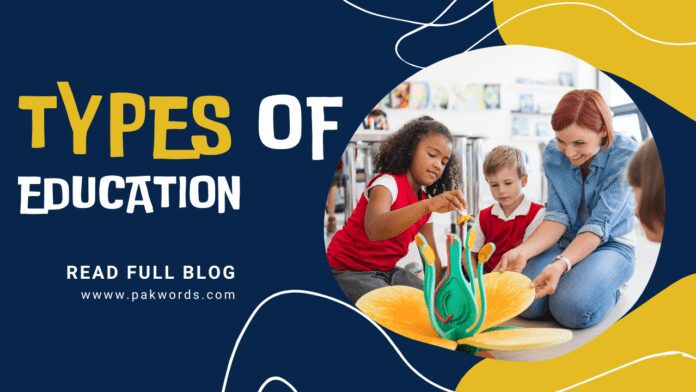
Education
Education is a process of gaining experience and learning new things. We can define education in such a way that the process of learning, the process of acquiring knowledge, the process of character building and the process of implementing all previous things into practical life. This is really a long-term process and one can spend years of his life learning to be educated.
Broad Meaning of Education
Education is literally used in the very vast meaning. The Knowledge of self is education. The knowledge of anything is education. To know, understand, speak, write, and read about something is called education. Learning about something and thinking is also education. The process of storing information, the process of storing knowledge, and converting to the next generation is education.
Types of Education
There are mainly three types of Education we can gain in our daily life. These three types are:
- Formal Education
- Informal Education
- Non-formal education
Formal Education
The first type of education is formal education. This type of education is provided by the government and the schools. It is a process where the student is required to attend classes and learn. The goal of formal education is to give us basic knowledge and skills so that we can function in our society. Education in formal education is often called ‘general education’ or ‘bread and butter education’.
The first type of education we learn in our life is formal education. This education is provided by the school, college and university. This education provides us with knowledge, skills and character. It is a system of education in which students learn a specific set of information and skills. Formal Education is a way to teach the skill of living.
Formal Education basically starts from elementary school to university education. This is the basic education that should be given by qualified teachers.
Forms of Formal Education
Classroom learning is a form of formal learning. It also includes school, college and university degrees and certificates. Planned curricula and schedules in an institution are the characteristics of classroom learning.
Advantages of Formal Education
- New and updated curriculum
- A well-organized model of Education
- Proper learning system
- Grooming of the students
- Engage the social behavior of students
- Advanced-level learning opportunities for students
- Institutional learning
- Social learning
- Formally recognized certificate
- Opportunities for jobs
Informal Education
Informal education means acquiring knowledge at home. It is not given in any institution, unlike formal education. This type of education is provided by parents and relatives. It is a system of education in which the students learn by themselves. The education provided by the parents is mostly based on their own experience and knowledge.
It is a form of home-based education. Informal education mostly takes place at home. It is a system where the education given by parents and teachers is not required. There is no need for a curriculum for this type of education. It is a system where the parents provide the education for their children.
This is the primary source of education for most people. This type of education is free and it is provided by parents and relatives. It is a process where the student learns in a manner that suits him. It is a system of education in which the student decides when, where and how he will learn.
Example of informal education
Learning bicycling, swimming, cooking, etc. all are examples of informal education.
Advantages of Informal Education
- No stress in informal education
- No waste of time
- Researched and high-standard knowledge
- Less costly
- High standard of education
- Strong knowledge of Books, the internet and online learning
- No need for a tutor
- No need of time tables and lessons
- Natural learning
Non-Formal Education
Of the three types of education, non-formal education is the most important type of education. Non-formal education is a system of education where the student learns basic education, such as reading, writing and speaking, as well as basic skills and much more. This education can be provided by parents and teachers and by other learning providers, such as tutors, psychologists, child psychologists, community workers, social workers, case managers, etc.
The main aim of non-formal education is to provide a system of education for skills, techniques and different types of knowledge like literacy, numeracy, life skills and more.
Non Formal Education forms
- Online courses
- Programs and diplomas
- Free courses in different institutions
- Guides to learning and other programs
Advantages of Non-formal Education
- It is practical education
- Learning professional skills and knowledge
- No age limit for non-formal education
- No regular exams
- Skillful growth
- Benefits of naturally growing minds
- No certificates require for non-formal education






